FHA Loans
FHA loans allow individuals who may not qualify for a conventional mortgage obtain a loan, especially first time home buyers.
FHA Loans
FHA home loans are mortgage loans that are insured against default by the Federal Housing Administration (FHA). FHA loans are available for single family and multifamily homes. These home loans allow banks to continuously issue loans without much risk or capital requirements. The FHA doesn't issue loans or set interest rates, it just guarantees against default.
FHA loans allow individuals who may not qualify for a conventional mortgage obtain a loan, especially first time home buyers. These loans offer low minimum down payments, reasonable credit expectations, and flexible income requirements.
Explore All The Loans We Provide
Take the first step toward the right mortgage
Apply online for expert recommendations with real interest rates and payments

365 Lending, LLC
P: (833) 382 – 3338
F: (248) 382 – 3338
E: Info@365-Lending.com
3160 Haggerty Rd, STE P.
West Bloomfield, MI 48323
NMLS # 2318316
Complaints may be directed to:
Phone: (833) 382 - 3338 or
Email: help@365-lending.com
JOIN OUR NEWSLETTER
SUBSCRIBE & STAY UP TO DATE ON THE LATEST FROM 365 LENDING:

This is not an offer to enter into an agreement. Not all customers will qualify. Information, rates and programs are subject to change without notice. All products are subject to credit and property approval. Other restrictions and limitations may apply. © Copyright 2020, 365 Lending, LLC. NMLS #: 2318316. All rights reserved.
